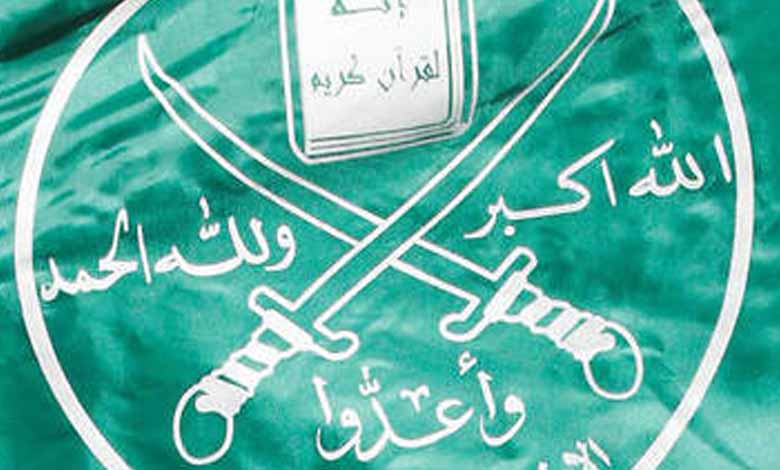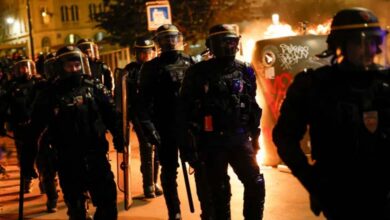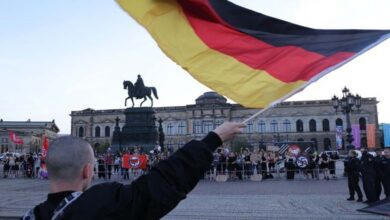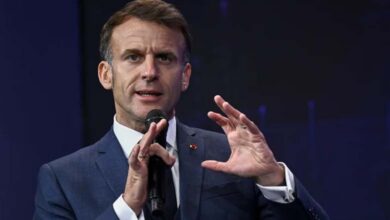In detail – How does Europe defeat the Brotherhood’ plans to spread extremism?

Authorities in Europe have been facing the threat of the Muslim Brotherhood for a long time, until the last few hours, by targeting the arms of the group that spreads extremism and radical thought on the old continent.
Over the past few hours, authorities in Belgium arrested an extremist Moroccan Imam, Hassan Iquioussen, a close associate of the Brotherhood, following the issuance of a European arrest warrant against him.
The French authorities announced last July that they had decided to expel the preacher for reasons related to state security due to the Moroccan-Muslim Brotherhood Sheik’s inflammatory speech inciting hatred and extremism, which is contrary to the instructions of the French Republic.
Informed sources confirmed that the arrested Imam was sent to prison the evening of his arrest in the city of Tournai near the French border, after Paris decided to expel him from the country and deport him.
Over the past few years, the European Union has declared a state of maximum alert to rid itself of the Brotherhood’s existence, which poses a strong threat to the unity of Europe. This is due to the organization’s implementation of a plan aimed at spreading extremist ideas and penetrating and destroying societies.
More recently, the Brotherhood has relied on modern Internet applications to spread its ideas and use them as a pretext to recruit the largest number of European youth for the group, and then distribute them to organizations linked to the group such as al-Qaeda, ISIS, and others.
This came amid European warnings against spreading extremist ideologies through the use of internet propaganda, as the use of social media often becomes an integral part of the same attack. In addition, the Brotherhood employs its sheiks and arms by using mosques to carry out the same plans that are carried out through modern internet applications.
Studies of the Brotherhood’s efforts to spread its extremist agendas have been updated on applications such as “Fatwa” and in closed groups in messaging applications such as Telegram and Signal. The extremist group has also successfully used the Internet for logistical support, such as the purchase of weapons and equipment, facilitated by the use of these mass servers, Internet engines and anonymity applications such as Tor to access the dark web and transfer money using cryptocurrencies that governments find difficult to censor.
The Brotherhood pioneered the establishment of Islamic cultural centers and mosques in Europe and the building of gender-based and advocacy-based “societies” (women, students, workers, etc.), which focused on assisting Muslims in their host countries and formed a constituency of support for Brotherhood programs and activities within Europe and beyond.
The Voice of Germany website published a report by Michael Hollenbach in which he spoke about the controversy surrounding the danger of political Islam to Western societies. The report points out that the issue of political Islam and the danger of the Brotherhood organization to the West has been raised increasingly recently, especially after the controversy created by the establishment of a center for the documentation of political Islam by Austria. The step of Austria prompted some voices in Germany and other European countries to demand similar action to confront political Islam and its risks with concrete steps on the ground.
The Central Council of Muslims in Germany stripped the world famous Muslim Brotherhood figure Ibrahim El-Zayat, known as the “Brotherhood spider” who is the son-in-law of the founder of the Muslim Brotherhood in Turkey, of his positions in the Muslim Brotherhood.












